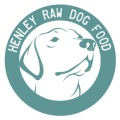
Raw feeding provides dogs a natural and biologically appropriate diet, but supplements can further enhance their nutrition and overall health. This blog will delve into the importance of supplements in a raw feeding diet, identify common nutrient gaps, and explore the benefits for your furry companion.

Understanding the Nutritional Needs of Dogs
Raw feeding offers a wide range of essential nutrients naturally, but it’s important to recognize that nutrient levels can vary. Factors such as ingredient quality, sourcing, and freshness can impact nutrient content. Supplements can help ensure your dog receives a consistent supply of vital nutrients.
Key Supplements for a Balanced Raw Feeding Diet
Omega-3 fatty acids, sourced from fish oil or algae, offer numerous benefits, such as reducing inflammation and promoting healthy skin and coat. Vitamin D supplementation supports bone health and immune function. Specific minerals like calcium and zinc may also require supplementation to ensure adequate levels. Organic bee pollen is also very good for your dogs as it contains vitamins A, B, C, K & E, known to strengthen the immune system.
Consulting with a Veterinarian
When considering supplements, it’s essential to consult with a veterinarian who can assess your dog’s specific needs. They can recommend appropriate supplements based on your dog’s age, breed, activity level, and health conditions.
Quality and Safety Considerations
Selecting high-quality supplements is crucial for your dog’s well-being. Look for reputable brands that undergo rigorous testing and have third-party certifications. Understanding the ingredients and manufacturing processes will help you make informed decisions and ensure what you are feeding your dog is safe.
Monitoring Your Dog's Response
Regular monitoring allows you to assess the effectiveness of supplements. Look for positive changes like improved energy levels, improved coat condition, and overall vitality. However, remember that individual responses may vary, so maintain open communication with your veterinarian throughout the supplementation process.
Whole Food Sources as Supplements
In addition to commercially available supplements, certain whole foods can act as natural supplements. Foods like sardines provide omega-3 fatty acids, while eggs offer essential vitamins and minerals. Incorporating these whole foods into your dog’s raw feeding diet can provide a natural source of nutrients.
Avoiding Over-Supplementation
While supplements are beneficial, it’s important to avoid over-supplementation. Excessive intake of certain nutrients can lead to imbalances or health issues. Maintaining balance and moderation is essential to ensuring your dog’s overall health and well-being.
By understanding nutrient variability, identifying gaps, consulting with a veterinarian, selecting quality supplements, monitoring your dog’s response, and incorporating whole food sources, you can provide a well-rounded and balanced diet for your furry companion. Remember, supplements should complement a wholesome raw feeding regimen tailored to your dog’s needs.

